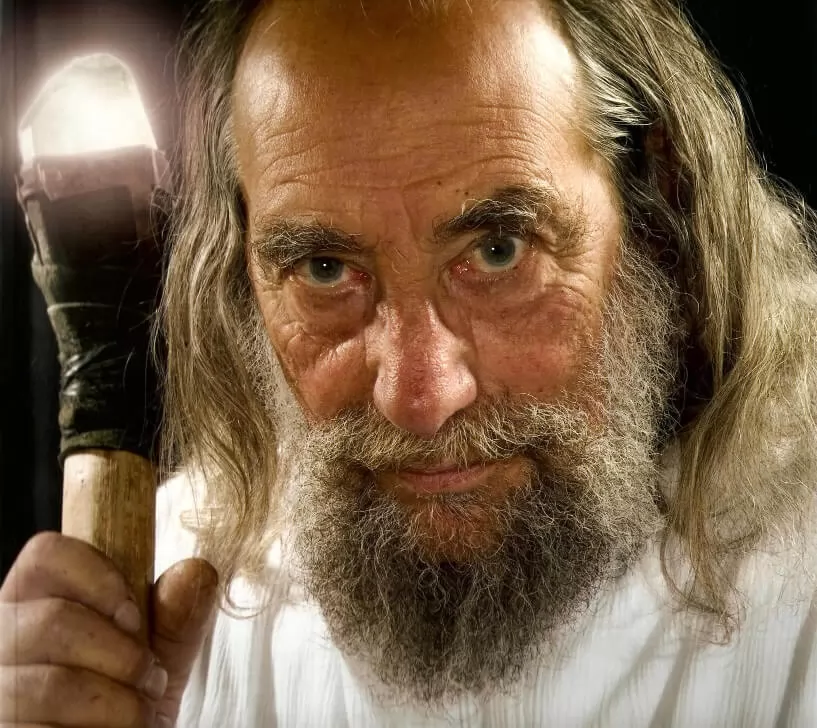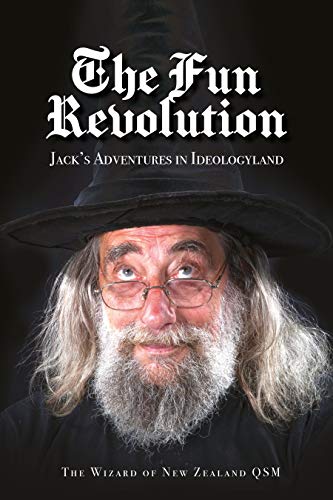NEW ROLES FOR MEN AND WOMEN IN THE ELECTRIC AGE
An Electronic Manifesto
My years as an academic sociologist and graduate in theoretical psychology have proved helpful in proposing reforms in traditional male and female roles. This is an enterprise that demands cool thinking.
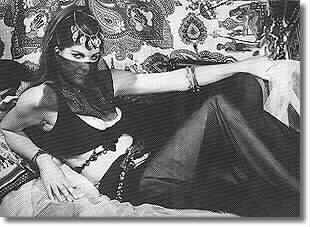
An Anglican background has given me a disposition towards solutions based on love and trust rather than fear and legally enforced egalitarianism. However years of radical social-psychological experiments first as University of New South Wales Wizard, and since then as Wizard of Christchurch and finally Wizard of New Zealand, have also given me unique insights into the nature of roles in social systems and the amazing power of fun to modify disastrously rigid role positions.
I hope that this admittedly over-simplified, but I hope good-natured analysis, helps readers to a clearer perception of the historical nature of the confusions and antagonisms following the recent radical changes in women’s roles and (with remarkably little social comment) the equally radical changes in men’s roles. “ideal type” descriptions are of course highly simplified and no real person could be exactly like any of the types here portrayed.
Man’s Relationship to the Means of Re-Production
Agricultural civilization itself is founded on the maternal principle. It is man’s relationship to the means of reproduction which ‘determines’ all other social relationships. The activities which are valued through religious-moral imperatives are all those associated with fertility.
It cannot be emphasised too much that although it is men who exercise authority in these so-called patriarchal civilizations, the core religious values that direct men are essentially maternal, being centred almost entirely on reproduction. Men are mainly valued by the contribution they make to population increase.
In the hunter-gatherer cultures which preceded the agricultural revolution the male link with reproduction through highly elaborate patriarchal/matriarchal structures was non-existent or weak. Males were valued for their position in dominance hierarchies which did not depend on ownership of land or animals but on hunting skills, physical presence, and display skills (dancing, acting, speaking etc.). Economically the meat supplied by the hunt was frequently less important than the food gathered by the women.
During the long period of agricultural economy the new roles allocated to men were subsidiary to the cult of fertility; fertility of land, plants, animals and human beings. Men were no longer valued as lovers, but as fertilisers, and no longer valued as hunters, but as farmers and/or warriors gaining more cultivated land for the rapidly increasing population.
The Paradigm Shift and Immortality
For at least 50,000 years men had occupied roles largely unrelated to fertility, but with the advent of the Agricultural Revolution their entire psycho-social identity was transformed. Women’s roles, which are inevitably psychologically and socially reciprocal to men’s roles, also underwent a profound change. The best term for the transformation of all meaning, one commonly used in the History of Ideas, is a “paradigm shift”.
Magical and largely existential meaning systems became future-oriented religious cosmologies which projected the new social order into supernatural realms. The parental roles of father or patriarch and mother or matriarch were emphasised by the gods and the whole system was motivated by a desire for immortality. Those who pleased the gods by their obedience to heavenly commands might be rewarded with immortality in the realm of the gods. They were also given physical immortality through the radical new emphasis on fatherhood which gave the children the man’s name and regulated the passing on of land and goods to the male heirs.
Any desires of men to throw off the irksome burdens of fatherhood and agricultural labour and to avoid the dangers and suffering of war were suppressed by the alliance of the priesthood (who controlled the value system by their monopoly of literacy) and the warrior-kings (who controlled the political-economic system by their monopoly of military force). The “manipulative” role of priest and the “macho” role of warrior-king were both radical changes from the hunter-performer role of men in pre-agricultural societies.
Women ceased being the primary economic providers and became dependent on (though sharing in) men’s economic activity. Women, who were previously attracted to men through men’s courtship displays, were trained to become more calculating, more concerned with men’s property and prospects, and were encouraged by their mothers, with the help of the priests, to repress their sexuality in order to become manipulating sex-objects. Powerful cults of virginity and motherhood are nearly always found in agricultural societies. Very strict moral control by parents is needed to achieve this biologically rather extraordinary state of affairs.
Repressing Female Sexuality & Male Egoism
To successfully repress the powerful sexuality of young women, who (almost uniquely amongst female animals) are always on heat and who (alone amongst female animals) can experience a strong sexual orgasm , is a tribute to the way that culture and powerful symbols of meaning can overcome biology and psychology.
Males too underwent a psychic transformation from sexually reticent, highly independent hunters and self-centred exhibitionists into sexually obsessed suitors chasing after females and regarding sex as a treat which they must pay for with goods and/or marriage. When not drawn to women through intense lust they become abjectly dependent on their mothers’ approval and dependent on their sexual partner’s reproductive ability to provide offspring for their immortality cult. Again one can but marvel at the power of belief and moral force to transform what has erroneously been called “human nature”.
From the Agricultural Revolution until the Enlightenment, the interdependent roles of husband and wife were closely linked with, and largely controlled by, the parents of both sexual partners. This applies to the Chinese, Egyptian, American and Indian agricultural civilizations as much as to the Judaeo-Christian-Islamic agricultural civilization.
The type of family system found in these civilizations is deceptively termed Patriarchy by many modern writers. Although men occupy most of the positions of overt authority, women have much more covert power than is generally recognised. The fundamental male-female relationship is not indeed patriarchal husband and dominated wife but matriarchal mother and dominated son.
Certainly wives have very little chance of controlling their husbands’ behaviour, though this does happen. A careful reading of the Old Testament, for example, shows that, when their sons’ inheritance is under threat, wives regularly manipulate their husbands into major changes of political action. Women’s (covert) power comes through their largely emotional control over their sons. It is a mistake to confuse overt authority with actual wielding of power in any political system. Even in a harem ultimate control is usually exercised by the patriarch’s mother.
Through the skilful use of guilt, the withholding of approval and other forms of emotional control, the most obstreperous macho man can often be brought to heel. The extremely long period of dependence of human children on their mother coupled with the monopoly of most legitimate authority by men is only part of the explanation for the social-psychological phenomenon of the manipulating bitch/macho man inter-active role-complex.
Man’s Relationship to the Means of Production
The traditional agricultural world civilizations were first challenged by the Greek-Hellenistic-Roman Civilization. From seeds sown at this time the Renaissance revival of classical ideas and the consequent breakdown of the Christian theocracy into mercantile secular states led to the Enlightenment and Industrial Revolution. This represented another paradigm shift in values and the roles legitimated by them.
The core value of the Venetian Republic and the other ‘capitalist’ states which first appeared in Italy was not reproduction but production. Agriculture and landowning became less important than manufacture and credit-controlling. Banks and factories usurped the pre-eminence of churches and estates. Priests gradually evolved into secular-intellectual scientists (who controlled the value system through the monopoly of the printing presses and education) and warrior-kings gradually evolved into merchant-entrepreneurs (who controlled the political-economic system through superior weaponry, professional armies and transportation technology).
As the Industrial Revolution developed, the roles of men and women changed too. The authority of parents over children lessened and was already being ridiculed by Boccaccio in the Fourteenth Century. Nuclear families are only possible when children leave their parents and establish separate households. Romantic love, previously a luxury for the land-owning classes, was adopted by the fast-growing bourgeoisie and provided the motivation for children to make this radical break away from parents and priests.
The new male roles were based on the production values of working as industrial or clerical wage-earners supporting a wife and children (though fewer children than the previous reproduction-centred economy). Birth control was being practised more and more; this alone represents an amazing change in core values.
In agricultural societies women’s roles in the economy were closely linked with those of men but in industrial societies the women were more closely tied to hearth and home as child-socialising became more complex and the private home became more and more a source of status. The female role-complex of housewife and mother became highly developed and quite distinct from the male role-complex of husband, father and provider.
The Romantic Age Ends the Industrial Revolution
The Industrial Revolution reached its climax in the Nineteenth Century when another major paradigm shift in values began to take place.
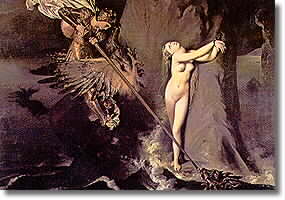
Already in the late Eighteenth Century the early Romantics began to question the industrial values that underlay Western Civilization. Women like Mary Wollstonecraft claimed the same “rights” that men had claimed earlier to break free from feudal obligations in order to break away from ‘feudalistic’ husbands and fathers. Romantic artists and writers rebelled against the ugly utilitarianism and obsession with productivity that crushed any colourful display or “wanderlust”. Ritualistic religion reappeared with the Gothic Revival. Having previously lost their aristocratic political functions, monarchs became more aesthetic and closer to the hearts of the people. The Rationalist Eighteenth Century became the Romantic Nineteenth Century.
The Industrial Age came to an end with the First World War, a headlong collision of all the expanding European powers who had run out of land to colonise. The powerful idea of the limitless expanding frontier had entered European civilization with the discovery of America. The old world died with the start of this bloodbath, which did not really end until the collapse of the totalitarian regimes it spawned in Italy, Spain, Germany and Russia.
Contemporary with this holocaust was the appearance of a technology radically different from any that had gone before. The Electric Age speeded up communication and social change in a geometric progression. Marshall McLuhan’s “global village” was realised and a post-industrial, post-literate civilization was rapidly coming into being.
The Electric Age and The Internet
Just as industry superseded agriculture (whilst still maintaining it as a base) so information processing and consumption-oriented moulding of the human psyche is superseding industry (whilst maintaining it as a base). The culmination of the Post-modern, Post-Industrial Age, sometimes called the Electric Age, is the Internet which supports the World Wide Web, a kind of “nousphere”, to cite the radical theologian Teilhard de Chardin.
This instantaneous, electronic, inter-communicating network of government agencies, commercial organizations and private individuals is like a giant superbrain. The really significant point is not that the World Wide Web has broken free from political, moral and economic control, but from intellectual control both by the intellectuals in the national educational monopolies and in the international mass-media monopolies.
The World Wide Web is mostly “rear-view mirror” material, to quote Marshal McLuhan, meaning that any new medium of communication begins by simply communicating old message forms instead of taking advantage of the new opportunities made available. The first printed books were just copies of the old manuscripts and the appearance of such powerful new forms of communication as the popular novel, the newspaper, the dictionary and the encyclopaedia took some time to develop.
The Web is at present full of school and university curricula, e-mail order catalogues, industrial-age ideological debates and juvenile home pages. Fortunately Search Engines have been created which anyone can instruct to seek out specific information by continuously scanning the Web. The potential for unconventional ideas to be exposed and debated is therefore enormous. I suspect this particular “message” is an example of a communication that might fall on deaf ears if transmitted in any other medium.
The End of Feminism and the New Androphobia
Once again we are undergoing a major shift in values and the inter-active male-female role complexes legitimated by them. Since the First World War in particular women have been leaving hearth and home for the work place. They have now obtained the right to vote, to own property, to divorce, to control their fertility, to hold any office in the industrial society, and even to enjoy sexual activity.
Over the past thirty years an entirely different group of women have appeared to challenge men’s authority who call themselves feminists and claim to be anti-sexist but who bear no resemblance to the previous feminists. These women are (paradoxically) sexists themselves. Their puritanical obsession with the horrors of The Patriarchy is very much like the religious fundamentalist’s obsession with The Devil.
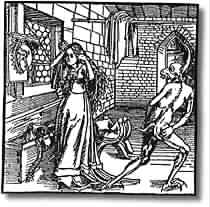
These “androphobes” have hijacked the feminist movement, and their paranoid ideology, which derives from a crude mixture of Marx and Foucault, is focussed on hatred of all heterosexual males. This sexist obsession disgusts genuine Marxists who could never see a white or black university-educated middle class woman as more “oppressed” than an unemployed, semi-literate, working class man, black or white. Androphobes are also hypocrites who milk the Patriarchy they claim to despise for highly paid jobs, government grants and the chance to bully young males and females in school and university classrooms.
Romantic Feminists
There are however a considerable number of feminists who, having achieved equality of opportunity with males (in terms of the values of traditional industrial society) are starting to create entirely new roles for themselves. I think the best term for these truly innovative women is “The Romantic Feminists.”
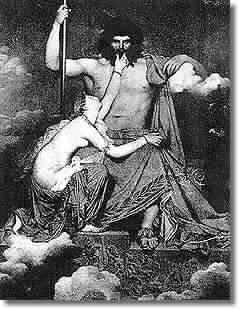
Once a woman has achieved parity with men in terms of equal opportunity, she can compete with men in the work place etc. and the only limit to her achievement in terms of power, money and status is her talent and will to succeed. Not all women have the talent and will-power to succeed but then neither do all men. In fact evidence is fast accumulating that men are losing out in the struggle. Boys in schools everywhere are performing worse than girls. Will these girls go on to take over the male institutions built up over hundreds of years?
Women who are successful in the “market place” are rarely interested in the misanthropic ravings of the androphobes whose obsession with control has driven them to try and take over the educational and mass media monopolies. Having achieved financial independence from men and having found the workplace more stimulating than the suburban home, many of these romantic feminists are quietly making truly radical experiments in their relationships with men.
Since they no longer need men to support them financially, to do the odd repair job, carry their bags or change their car tyres, and since many of them are reluctant to become mothers; preferring their careers, overseas travelling and broadening their minds through study and the arts, they really have no need at all of the traditional ‘macho’ male who is dying to have children and look after “the little woman”, have her cook his meals for him and motivate him to earn more by working harder.
Girls Just Want to Have Fun!
However the romantic feminist cannot stand the “sensitive new age guy” who is full of guilt and tries desperately hard to please women. There is something sexually repulsive about a male who apologises to women all the time, is reliable, clean and tidy and loves home-making and children. There is nothing in the “snag” to draw out romantic passion. However these new women are beginning to experience true romantic passion in the presence of the new men who are also making their first appearance at this stage in history.
It is important to remind readers here that, traditionally, romantic love was usually for males to experience and for females to inspire. Mutual romantic love is inevitably catastrophic as exemplified in the tragedies of Romeo and Juliet, Tristan and Isolde, Lancelot and Guinevere – the list is endless. In traditional romantic love the woman is cool, beautiful and remote and the man is hot with passion and will do anything for his “sex-object-mother-goddess” (except leave her alone).
Although this form of psycho-sexual-relationship was, and still is, extremely common, there is a strong element of incest involved and it is certainly the basis for Freud’s curious theory of the universal Oedipus Complex. Women who need men for their money and status and as fathers for their children, being unable to look after themselves, (in other words traditional manipulating pre-feminists) are prepared to “shut their eyes and think of England” (or the mortgage). Like all feminists (including the bureaucracy-loving androphobes) romantic feminists cannot abide the macho men who want their women at home with the children or out on their arms as beautiful accessories, but they are equally revolted by the “liberated” men lacerated with guilt and who hate their own gender.
The snags are the right reciprocal role-partners for the androphobes just as macho men are the right reciprocal role-partners for manipulating bitches, but what type of man is a suitable reciprocal role-partner for the romantic feminist? This has been one of my main concerns over the past twenty-five years.
A New Role-Complex for Men
Surprisingly enough quite a lot can be learned from the pre-agricultural societies. Men in these hunter-gatherer societies were not threatened by the fact that women controlled the economy, nor were they threatened by having no significant status as fathers or patriarchs, they were not even threatened by women whose sexual passions and explosions of violence were greater than their own. What sort of value system and role-complex did these men have that enabled them to maintain their confidence and self esteem in such a situation ?
We do not possess a perfect knowledge of the structure or function of these cultures, which successfully adapted to the natural environment for upwards of fifty thousand years, since those that survived until the Nineteenth Century when anthropologists began to study them were usually in decay, being in retreat from expanding, aggressive agricultural or industrial societies. A major symposium on hunter-gatherer societies held in the seventies concluded that their lives were far from being “nasty, brutish and short” but closer to the Garden of Eden.
Male Sex Objects and Magical Exhibitionists
The answer seems to be that men in these cultures regarded themselves, not as “useful” to any reproductive or productive enterprise, but as “demi-gods” or magicians who developed a whole array of techniques to spellbind the women. Displays of boasting or “skiting” included pot latching, acrobatic exhibitionism such as bungee-jumping, enduring pain by tattooing or hanging from trees from holes in their arms , ‘pogo-sticking’ to drums for hours on end, playing aggressive competitive sports, telling fantastic fishing and hunting yarns and putting on masks of totem animals to perform ceremonial dances. Women watched in amazement.
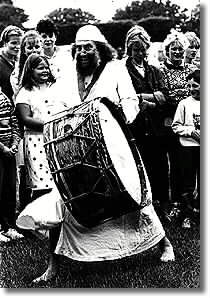
Male mateship bonds were all powerful and men who preferred the company of women to going off on hunting or fishing trips were ridiculed or allocated a separate role as bardeche (early ‘snags’). Socialisation of young males was not entrusted to women or bardeche after the age of seven or so. Boys were taken into the male quarters, weaned away from female role models and taught the mysteries of male magic.
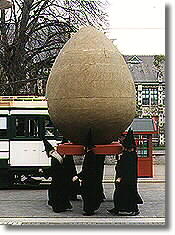
Wizards Rule OK!
These societies were not ruled by literate priests, using guilt as punishment and immortality as reward, but by wizards, witchdoctors, shamans, and medicine men. With great powers of oratory, psychosomatic healing and performance skills these pre-literate “mystagogues” maintained the minimum order which is needed in all human groups with a mixture of mystery and art.
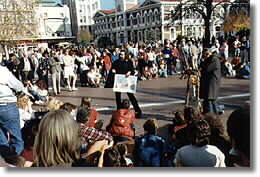
The wizards had to have a good balance of what Jung calls the “animus”, or male spirit, and “anima”, or female spirit, (this is not the same thing as a trans-sexual or hermaphrodite but more like a mystical androgyne). An unsuccessful wizard was simply ignored and unhappy tribal members could always just walk away and join another tribe as there was no ownership of land.
There are still mature men around today who would love to revert back to this earlier life-style (if their wives would let them) and young men who, after a few years of backpacking or living in the bush, are weaned enough and have enough self esteem to take on new male roles which neither compete with nor conflict with those of the new romantic feminists, but are reciprocal with them.
Of course we cannot simply imitate the hunter-gatherer economy and life-style but today men could easily leave the economy to women whilst they master the self-confidence, performance and communication skills they so badly need .
Man’s Relationship to the Means of Communication
Those readers who understand what I am saying in this “message” and are interested in attempting to realise the new male-female role-complex I have described can get in touch with me through my Wizard’s site on the World Wide Web, can start studying the books that I and others recommend and can form and join discussion groups. The new Post-Literate society of the “Age of Communication” is of course based on the now outdated literate world of the Industrial Age. The World Wide Web is the ideal magical matrix for the new male as an economically “useless” ‘homme fatale’, magician and sex-object, to make contact with his peer group.
Let us hope that with the abolition of patriarchy most men will be able to avoid being manipulated into slavery, as husbands, fathers and providers. The new “marriage” system I recommend is not based on baby farming or industry but on communication; a dynamic and delightful struggle between passionate romantic feminists, playfully trying to “domesticate” their men, and gentle, elusive, cunning, and exhibitionistic males playfully trying to “primitivize” their women.
The “Green” Spin Off
The ecological implications of any shift by men away from traditional industrial roles are extremely healthy and are alone sufficient excuse for the change. A slowing down of much useless activity, at present justified by the obsession with full employment and wasteful material consumption, would mean much less pollution. The lessening of the social value imputed to patriarchy and men’s immortality through offspring, together with the present cult of motherhood being replaced by the cult of romantic love as psychologically and socially more “fulfilling” for women, would eventually (if displayed as desirable in the mass media) lead to a considerable drop in population. This is essential for the quality of life if not the survival of the human race.
Totalitarian industrial age reactionaries, who insist that everyone should be forced to think and act the same way as they do, will no doubt assume that I want immediate government legislation to enforce the new roles. Encouragement for those men and women who want to experiment with them is all that is needed. Today there are many different types of “marriage” and no doubt there always will be. Farmers and peasants will presumably be content with a fertility-based patriarchal system involving land inheritance. Industrial and clerical workers and many intellectuals (both sacred and secular) may well continue the nuclear family with parents sharing both work and child-rearing in order to maximise their careers and earnings.
The new “romantic feminist / magician exhibitionist” inter-active role-complex where neither fertility nor economic gain are core values is an ideal adaptation to the twenty-first century social, technological and ecological conditions. Neither the “androphobe / snag” nor the “manipulating bitch / macho man” interactive role-complexes seem suitable. In this case it will simply take off without any need of governmental assistance. Nothing is more powerful than an idea which occurs at the right time.

My “fiancée” and I have spent twenty-five years attempting to establish the ground rules for the new roles and since 1974 I have been exchanging ideas with interested people who have come from all over the world to hear my daily speeches in Christchurch. If “the Medium is the Message ” then a public square was (until the Internet) the only place for any messages that are too radical for the controllers of the mass education and mass media institutions of industrial society.
This is an important area for psychological and sociological research and development but somehow I cannot see present university academic psychologists or sociologists undertaking it. But anything is possible, the Fun Revolution started at the University of NSW. in 1968 – and with the participation of the Vice Chancellor !
The Electric Age Cosmology
Each of the major paradigm shifts is accompanied by a new cosmology. Agricultural Age Cosmologies were based on deities presiding over a static, hierarchical order of being. Time was usually conceived as cyclical, being based on the examples of the seasons. However time is seen as linear in the case of those resentful, eschatological religions based on hatred of the present world order and awaiting revolution through divine intervention.
In Industrial Age Cosmology the Universe is believed to be a material phenomenon that can be measured and manipulated by neutral observers who believe in economic development of the secular state as an absolute good. This is a universe for mechanics and businessmen, not farmers.
The end of the Industrial Age Cosmology and the beginning of The Electric Age Cosmology comes with quantum mechanics in physics and relativity theory in both the physical and social sciences. All reality is now regarded as socially constructed and maintained by scientific-educational monopolies. There is no longer a real physical universe, only models adopted for their usefulness to those that finance the sciences. There is no metaphysical reality; no honour, only mass media fame, and no good and evil, on ly politically correct behaviour enforced by national governments.
This can only be a transitional period as both educational monopolies and powerful state bureaucracies are dying, dysfunctional, industrial age phenomena.
The construction and implementation of an inside-out Electric Age Cosmology depends on individuals making informed consumer choices, within limited parameters of course, about the universe they live in. If we have choice even over the nature of physical reality (such as whether the Earth itself is north up or south up, a sphere or a hollow container), how much easier to have the choice as to whether or not economic goals should have precedence over all others and choice as to the form of sexual relationships as I have outlined above.
The Fun Revolution at last!
Communicating by means of the World Wide Web is the ideal way to by-pass the “Ministry of Truth” and after intensive interaction on a world-wide scale the necessary voluntaristic ground rules can be set up. This would be rather like a role playing game. The cosmology (script for the scenario) which gives people the most fun and can also successfully consign dysfunctional cosmologies to oblivion through public ridicule will then triumph, bringing imagination, delight and flexible order back into an increasingly depressing, conformist and brutal world.
The idea of “happy endings” brought about by human ingenuity and playfulness is of course very unpopular with ruling elites in both agricultural and industrial periods of history where divine intervention, hard work or violent revolution are regarded as t he only meaningful ways to achieve this result. These dogs have had their day. It’s time now for the fun revolutionaries.
In the Age of Anxiety fun is the spectre that is haunting Europe and the rest of the world.
Role Theory
Role theory developed in the USA earlier this century as an analysis of social phenomena based on the assumption that human beings interact socially through acting out roles, like actors in a drama. The “script” which regulated, maintained, passed on and renewed the roles was the Value System (or belief system) of each culture.
I can only assume that the American Revolution with its Enlightenment rejection of the past and desire to create a “new Adam” led to a detached perception in which the value system, normally implicit and assumed, became something that could be chosen consciously. This being the case then the nature of the roles sanctioned by the values were no longer assumed as “given”, depending on age, gender, race, social class etc.
The lack of an Established Church, the libertarian lifestyle of the “frontier”, the suicidal European First World War, (which left the USA as the major world power), and the electrification of communication systems which led to increasing loss of control over socialisation by parents and educators, all contributed to Americans’ perception of themselves as free to choose roles based on the anarchic “American Dream”. Role-playing games first originated in the USA and are still very popular there.
Most members of a culture identify with the values as a whole, internalise them and see threats to them as threats to their own identities. There are other groups, who for a variety of different historical or psychological reasons, perceive the dominant c culture as alien and malevolent and belong to sub-cultures or counter-cultures with their own sets of values. There are many different types of these, ranging from criminals and indigenous peoples occupied by other nations, to those whose religious/politic al values are of the messianic, millenarian type like fundamentalist Christians, Jews and Moslems, Revolutionary Socialists and radical feminists.
Members of millenarian and revolutionary groups with utopian expectations have such rigid values and unquestioning beliefs that they are puritanical in their behaviour and are repelled by any idea that they could be acting out roles. They are what we commonly call “serious” and are distrustful of people who perform their roles with skill and enjoyment. They are convinced that the only “real issues” are those which their own particular ideology or belief emphasises and have very little tolerance of what may be important “issues” for members of the dominant culture or other cultures.
This was written about twenty years ago, if you have enjoyed the ideas found here you should now read the newly written “Love and Marriage in The Consumer Society” in the same Ideas Section.
(Wizard, Oct 2009)
This video clip is an extract from a longer item on “Thefreeshow”.
